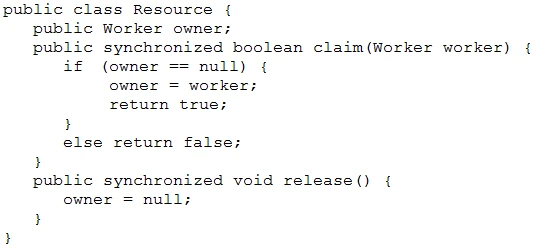
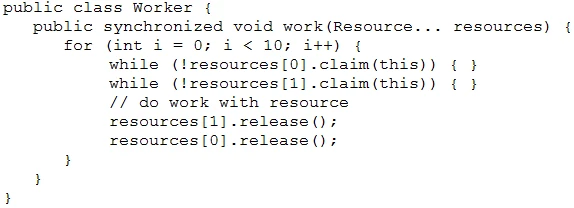
And given this fragment:
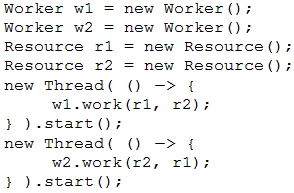
Which describes the fragment?



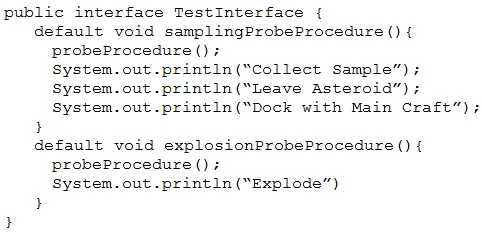
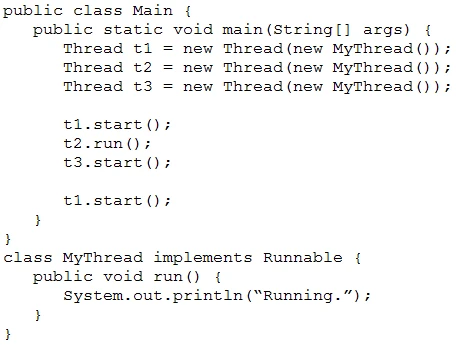
An IllegalThreadStateException is thrown at runtime. In the given code, `t1.start();` is called twice. According to the Java documentation, starting a thread that has already been started is not allowed and will result in an IllegalThreadStateException.
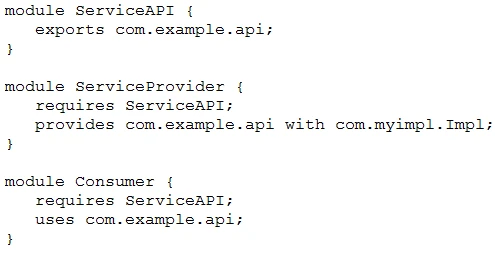
The placement of the com.example.api API in a separate module, ServiceAPI, indeed makes it easier to install multiple provider modules. By having the API in its own module, different modules can implement the API without modifying the API module itself, thus allowing for flexibility and easy swapping of implementations. The ServiceProvider module, on the other hand, does not need to know the identity of any modules that use the com.example.api API. This separation of concerns adheres to the principle of module decoupling, where the provider does not need to be aware of the consumers of the service.